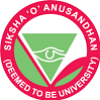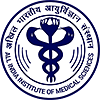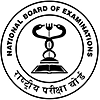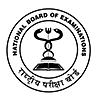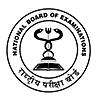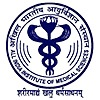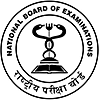MD Physiology Syllabus and Subjects

MD Physiology syllabus is a three-year postgraduate course in Physiology specialization, and the syllabus and subjects are divided into six semesters. The syllabus includes General Physiology, Clinical Biochemistry, Clinical Pathology, Pediatrics, Ophthalmology, Urology, Neurophysiology, Haematology, Anatomy, Dissertation, and many more.
Semester Wise MD Physiology Syllabus
The MD Physiology course aims to ensure that the students have all the exposure in covering everything from the human body functions to molecules behave in cells to how organ systems work together in terms of Chemistry and Physics. MD Physiology course enables us to comprehend what occurs in a healthy body in regular life as well as what occurs when someone becomes ill. Semester-wise MD Physiology subjects list is given in the table below:
|
Semester I |
Semester II |
|
General Physiology |
Blood |
|
Physiology of Excitable Tissue |
Endocrinology and Metabolism |
|
Neurophysiology |
Gastrointestinal Function |
|
Special Science |
Excretory System |
|
Semester III |
Semester IV |
|
Medical Gastroenterology |
Clinical Pathology |
|
Endocrinology including Diabetology |
Anatomy |
|
Clinical Biochemistry |
Community medicine |
|
Haematology |
Urology |
|
Semester V |
Semester VI |
|
Paediatrics |
Dissertation |
|
Ophthalmology |
- |
MD Physiology Subjects
The MD Physiology course offers both theoretical and practical aspects of the study. MD Physiology subjects like General Physiology, Clinical Biochemistry, Clinical Pathology, Pediatrics, Ophthalmology, Urology, Neurophysiology, Haematology, Anatomy, Dissertation, and many more. The course syllabus includes both conceptual and application-based practical subjects. The compulsory subjects include:
- General Physiology
- Clinical Biochemistry
- Clinical Pathology
- Paediatrics
- Ophthalmology
MD Physiology Course Structure
MD Physiology course structure includes both core and elective subjects which are the aspects of the study. The course structure is made in such a way that both classroom training and practicals are included in the course curriculum. The course structure is given below:
- VI Semesters
- Core Subject
- Elective Subjects
- Practicals
- Research Projects
MD Physiology Teaching Methodology and Techniques
The course curriculum takes into account different teaching methods. Classroom learning includes practical sessions for students. Students who are passionate about studying deep into Medical Science, Biology, Biochemistry, Human Body Functions, Medicines, and carrying research papers ahead, and building a data collection from it. Listed below are the teaching methodology and strategies in general:
- Practical & Live Sessions
- Guest Lectures, Seminars, and Workshop
- Group Assignment and Discussion
- Research Project Submission
MD Physiology Projects
Research Projects are given to students to understand the concepts and help students in getting hands-on experience. Research projects and job training are to be completed by the end of the final year. Some popular MD Physiology projects topics are:
- Effects Of Salt Deprivation And Calcium Load On The Blood Pressure
- The Effect Of Pollution On The Nutritional Status Of Pre-School Children
- Effect Of Cigarette Smoking On Lung Function
- Normal Electrolyte Values In An Adult Population
- PH Effect On Human Erythrocyte Shape
MD Physiology Reference Books
MD Physiology books are available both online and offline by many authors and publications. Reference books are meant for gaining an in-depth understanding of human body concepts. Books on MD Physiology for academic purposes differ according to subjects. Some of the reference books for the course in MD Physiology are:
|
Books |
Authors |
| Anatomy And Physiology For Healthcare |
Paul Marshall |
| Atlas Of Human Anatomy |
Frank H. Netter |
|
Big Picture Physiology: Medical Course |
Jonathan D. Kibble |
|
Pathophysiology Made Incredibly Visual! |
Lippincott Williams And Wilkins Staff |





